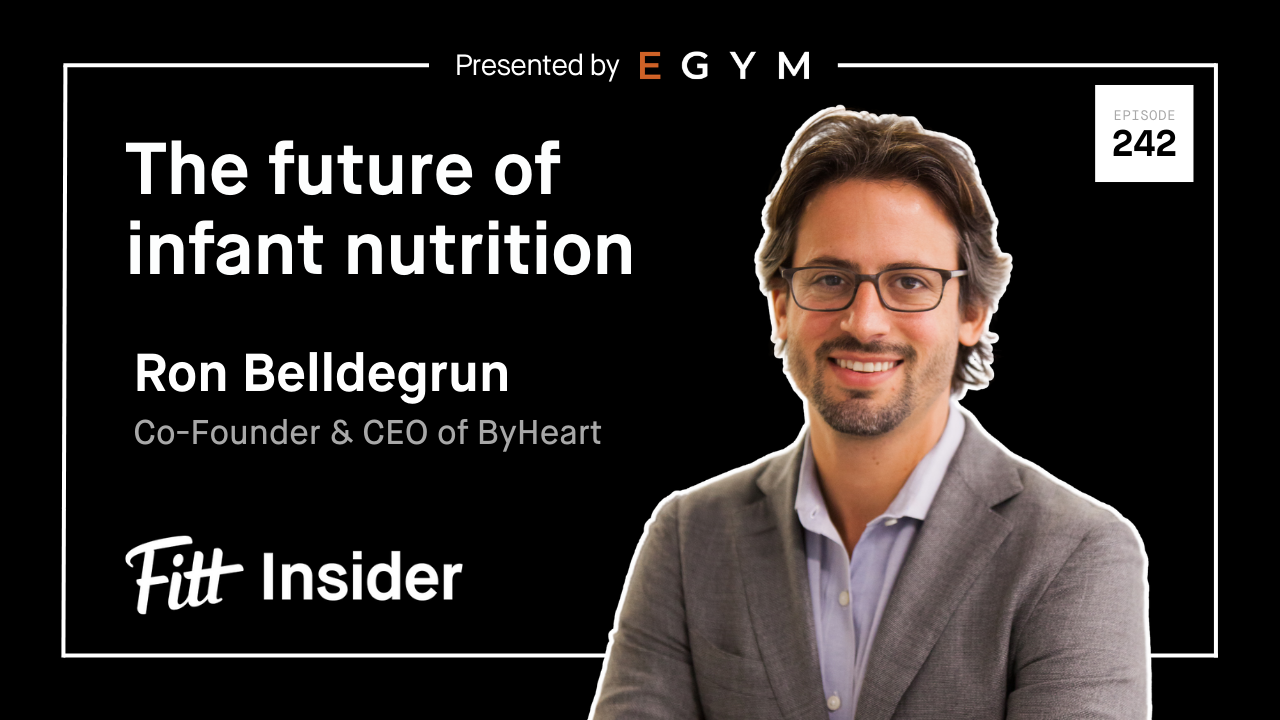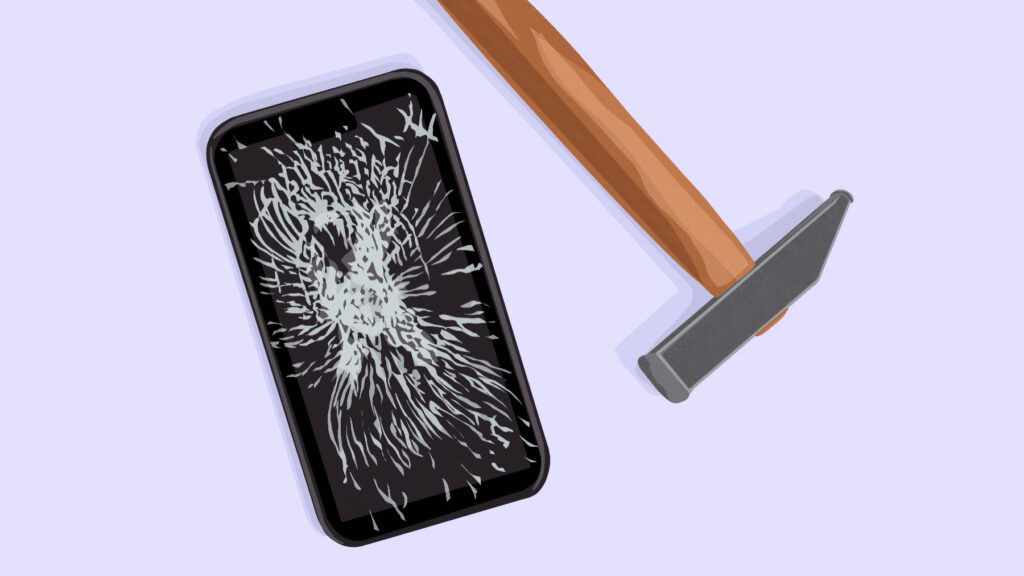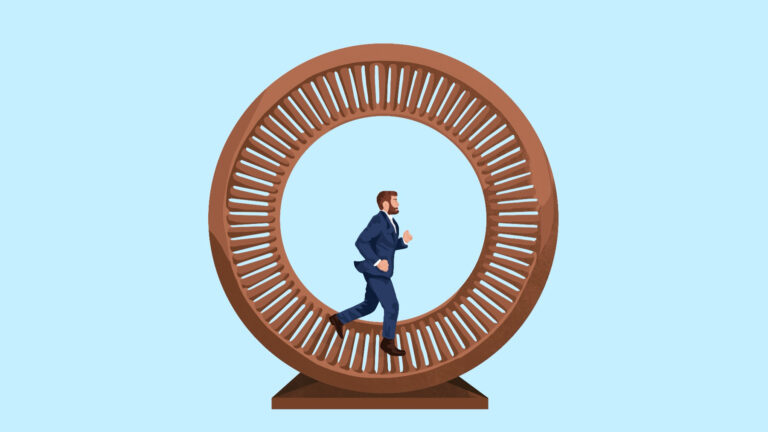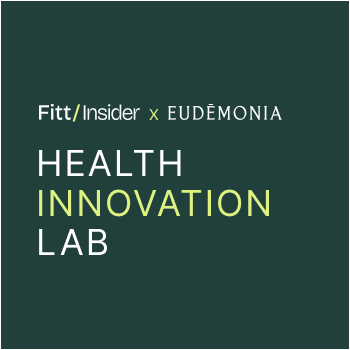
The digital hub for local fitness.
Digital distraction is a public health problem.
Wired
Mobile devices are inescapable.
- 90% of US adults are online everyday, 41% almost constantly.
- Teens average 4.5 hours of smartphone use and 237 notifications daily.
- Since 2011, the number of Americans with smartphones grew from 35% to 97%.
Rewiring brains, countless studies have linked excessive tech use to anxiety, depression, sleep struggles, ADHD, vision and musculoskeletal problems.
But consumers are hooked, with 75% saying leaving their phone at home makes them uneasy.
By Design
Engineered to addict, devices distract people from the joys of daily life.
Constantly multitasking, we indulge in unhealthy habits more but enjoy them less, caught in a loop of endlessly unsatisfying consumption.
Built to connect friends and family, social media has the opposite effect — with influencer-dominated feeds fueling comparison and low self-esteem.
Seeing mental health decline and ADHD rise, many are rethinking their relationship to screens.
Unplugging
Hoping to escape downsides, health-conscious consumers are logging off.
Dumbphones—aka featureless devices—are booming, with provider Dumbwireless 10xing sales from March ’23–24, and competitor Light Phone on pace to 2x revenue two years straight.
Gaining clout, the latter dropped a Kendrick Lamar collab, Human Mobile Devices x Mattel announced a Barbie flip phone, and streetwear brand Bodega launched the “Boring Phone.”
As vinyl records, film cameras, and Y2K style also resurge, analog living has become a flex.
Support Systems
Emerging companies have made it their mission to save people from mindless scrolling.
Guardrails. Stripping down existing devices, the Unpluq Tag simplifies iPhones and Androids, while apps like Opal and Forest reduce distraction.
Adding friction, LookUp’s phone boxes keep friends off screens during hangs. Serving lockable pouches to schools and concert venues, Yondr’s sales increased tenfold from ’21–’23.
Intentionally anti-addictive, Daylight’s “humane” tablet computer is designed for deep work outdoors. Holding people accountable, Caveday hosts virtual concentrated work sessions.
Turning digital dopamine into a health metric, the Roots app quantifies scrolling’s effects.
Swaps. At the same time, wellness brands are replacing screen time with new pastimes.
Profiting on human connection, Timeleft and Offline match strangers for shared meals. Endorsing escape, Getaway and Unplugged rent remote digital detox cabins.
Elsewhere, phone-free sauna studios and sound baths restore the senses, and adventure tourism renews the spirit.
Freedom
Taking back free time, people of all ages gain more time to play.
An underrated wellness hack, “true fun”—defined by author Catherine Price as the confluence of playfulness, connection, and flow—yields mental and physical benefits.
Lowering cortisol, blood pressure, and depression risk, leisurely fun is key to well-being; and unlike digital dopamine, IRL activities promise lasting satisfaction.
Punchline: Fighting FOMO, Americans are chronically online and severely stressed, losing touch with themselves and others. As more strive to moderate screen time, phone-free wellness offerings can help them be present.
🎙 On the Podcast

ByHeart co-founder & CEO Ron Belldegrun talks disrupting the baby food industry.
Refreshing an outdated category, ByHeart is a farm-to-formula baby food brand. Pioneering clinical research, the company is raising the bar with grass-fed, whole milk-based infant formula.
We also cover: infant formula’s food security problem, ByHeart’s nutrition research, and the importance of owning end-to-end manufacturing.
Listen to today’s episode here.
📈 Weight loss, women’s health, gut care supplements surge
Wellness trends are reshaping supplement categories, per The Vitamin Shoppe’s latest report.
Ozempic. The GLP-1 frenzy sparked demand for weight loss aids, sending the store’s sugar control products up nearly 40% and berberine >50% in 2023.
US protein supplement and meal replacement sales also rose 15% as drug-takers sought nutritional support.
Healthspan. More than living long, consumers are focused on feeling young. As more prioritized long-term function, the chain’s cellular health products spiked 45% YoY.
GutTok. Talk of bloating and bowel movements blew up on social media, destigmatizing the digestive health category.
Modernizing gut support, digestive health drink sales were up 22%, high-fiber yogurt 30%, and prebiotic sodas >220% from Oct. ’22–’23.
Women’s health. The store’s women’s health section added 40+ new products, with brands cashing in on the $17.8B menopause market, and more females opting for natural reproductive health solutions — from PMS to prenatal.
Chill. Functional beverages are still booming, but consumers are craving cleaner energy.
Anxiety and stress relief were top drivers of drink choices, with L-theanine-infused coffee and tea gaining 70% from Oct. ’22–’23, per SPINS.
Takeaway: As consumers get specific about desired outcomes, targeted supplements are in high demand. This year, weight loss, longevity, women’s care, and gut health are top of mind.
Presented by SWEATBASE
🌐 Omnichannel For All
Powered by FITRADIO, SWEATBASE helps local operators scale an omnichannel presence.
Win-win. The easy-to-use app gives exercisers 24/7 workouts from favorite trainers while monetizing content for small businesses.
Combining popular licensed music, live streaming capabilities, and powerful metrics within one platform, SWEATBASE is leveling the playing field for independent gyms and trainers.
And unlike YouTube, creators set prices — keeping 80–100% of subscriber revenue.
SWEATBASE provides the software. You build the workouts. Members generate results.
Get started now to tap your digital potential.
🤍 Researchers say spirituality is key to health
Growing evidence links spiritual beliefs to positive health outcomes, including lower rates of all-cause mortality, depression, and substance use.
Divine intervention. Researchers say spirituality—defined as having a sense of meaning, purpose, and connection to something larger than oneself—is a social determinant of health warranting clinical attention.
But, just 7% of medical schools require coursework on the subject, and 46% of public health graduate students say spirituality’s impact is never mentioned.
Soul-searching. The majority of people consider spiritual health important, but it’s becoming harder to cultivate and declining with generations.
- Gen Zers are 3x more likely than baby boomers to struggle with spiritual health.
- Gen Zers with poor spiritual health are up to 4x less likely to have good mental health and 2x less likely to have good physical or social health.
Self-reporting lack of purpose and resilience, young people are soothing worries with wellness and paying for social experiences in search of connection.
But as concepts like holistic health and alternative medicine enter the mainstream, spirituality could resurge as a core element of well-being.
Punchline: Post-Enlightenment, organized religion was understandably separated from health science. Coming full circle, experts are beginning to suggest faith—whether from religion, nature, or human connection—could be as vital as food and fitness.
📰 News & Notes
- Zwift launches “Ride” smart bike.
- Oura tops 2.5M rings sold, targets women’s health.
- Jake Paul launches better-for-you men’s personal care brand.
- Lack of sleep fuels stress, chronic disease among Americans.
- UK gyms post revenue, membership gains led by HVLP brands.
- Color Health leverages Open AI’s GPT-4o for cancer care copilot.
- Bayer shutters personalized vitamin brand Care/of, explores sale.
- adidas, League One Volleyball announce athleticwear partnership.
- J.P. Morgan launches $500M biotech fund targeting obesity drugs.
- Wearables maker COROS debuts solar-powered GPS bike computer.
- Done CEO, president arrested for $100M Adderall telehealth scheme.
- Xponential Fitness names new CEO. [Re-read: Feds Investigate XPOF]
- Truemed teams with Eight Sleep, Barry’s to enable HSA/FSA spending.
- Health & wellness PR specialist Jack Taylor opens office in the Middle East.
- Les Mills debuts strength and sculpt workouts for community-minded gym-goers.*
- Discover hundreds of health & fitness roles at Fitt Jobs // Enlist our recruiters to hire top industry talent.
💰 Money Moves
- Virtual mental health care provider Talkiatry added $130M in a Series C round led by Andreessen Horowitz.
- Biotech startup Enveda raised $55M to develop new drugs derived from ancient plant remedies.
- Sexual wellness platform Arya raised $7.5M in a seed round co-led by Patron and Play Ventures.
- Marigold Health, a peer support platform for substance abuse recovery, closed an $11M Series A round led by Rock Health and Innospark Ventures.
- Gluten-free bread brand Base Culture secured $2.7M in a new funding round.
- Better Health, a care platform for chronic conditions, added $14M in a funding round.
- Medical aesthetics company AVAVA added $35M for commercial expansion of its precision dermatology lasers.
- Digital psychiatry platform Brightside Health acquired virtual substance abuse treatment provider Lionrock Recovery.
- Grayce, a support platform for caregivers, raised $10.4M in a Series A round led by Maveron.
- Canary Speech, a company using AI-powered vocal analysis to screen for mental illness, secured $13M in a Series A round.
- Nonalcoholic beer brand RationAle Brewing received an undisclosed investment from bochi investments.
- Behavioral health tech company NeuroFlow acquired measurement-based care platform Owl.
- Carbon-neutral foods company Neutral Foods acquired grass-fed dairy brand Zeal Creamery.
- Plant-based meat maker Tender Food raised $11M in a Series A round led by Rhapsody Venture Partners.
Today’s newsletter was brought to you by Anthony Vennare, Joe Vennare, Ryan Deer, and Jasmina Breen.
*Sponsored content






